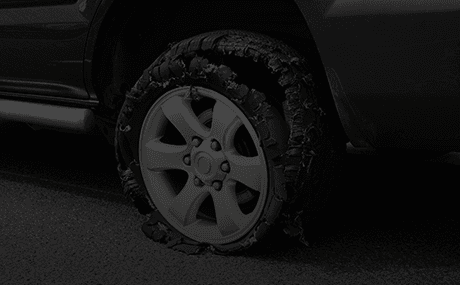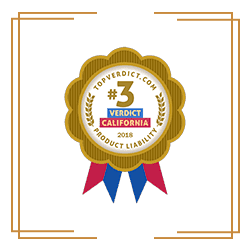Los Angeles Forklift Rollovers and Injuries
Forklift Rollover Accident Lawyer
Many jobs require the use of industrial machinery. Some jobs require lifting and moving of large loads and will utilize a forklift to do the heavy lifting.
Accidents involving heavy machinery can result in catastrophic injuries or fatalities. A forklift rollover victim may require prolonged hospitalization and long-term rehabilitation. Many injuries result in temporary or permanent disability.
Due to the injury, an individual may miss work for an extended time, causing financial hardship in a household. A death in a family due to a Forklift rollover may cause economic difficulties for those remaining.
At Shoop | A Professional Law Corporation, we represent many clients and their families involved in industrial machinery accidents including those injured in forklift rollovers.
Common Causes of Forklift Rollovers
Forklift rollovers are one of the most common and dangerous types of forklift accidents. They typically occur due to improper operation, environmental factors, or mechanical issues. Here are the common causes:
- Turning at Excessive Speed: Forklifts have a high center of gravity, especially when carrying a load. Taking a turn too quickly can easily cause the forklift to tip over. Operators should always slow down when turning to avoid this risk.
- Unbalanced or Overloaded Forklifts: If a forklift is carrying a load that exceeds its weight capacity or is improperly balanced, it can cause instability. A load that is too heavy or positioned incorrectly (e.g., too high or uneven) can shift the center of gravity and lead to a rollover.
- Operating on Uneven Ground: Forklifts are designed to work on smooth, level surfaces. Driving on uneven or sloped ground can destabilize the forklift. Ruts, bumps, or gradients can easily cause the forklift to tilt and overturn.
- Improper Use of the Mast: Raising the load too high while the forklift is moving, especially when turning, can make the vehicle top-heavy and prone to tipping over. Operators should only lift loads to a higher position when stationary.
- Driving with an Elevated Load: Forklift operators should keep loads as low to the ground as possible when driving. Elevated loads shift the center of gravity higher, making the forklift more prone to tipping over, especially when driving over uneven surfaces or turning.
- Inadequate Training: Inexperienced or poorly trained operators are more likely to make mistakes, such as speeding, overloading, or improper handling of the equipment. Proper training is crucial to ensure safe forklift operation and to prevent rollovers.
- Improper Braking: Sudden or harsh braking can destabilize a forklift, particularly if it is carrying a heavy load. Stopping abruptly can shift the load or throw off the vehicle's balance, potentially leading to a tip-over.
- Environmental Factors: Slippery surfaces, wet or oily floors, and cluttered work areas can make it difficult for the operator to maintain control of the forklift. These conditions increase the likelihood of losing balance and causing a rollover.
- Mechanical Failure: Forklifts require regular maintenance to operate safely. Worn-out tires, faulty brakes, or other mechanical issues can make a forklift more susceptible to tipping over. Neglecting maintenance increases the risk of a rollover.
- Collisions: If a forklift collides with another vehicle, structure, or object, the impact can cause it to tip over, especially if the forklift is moving at a high speed or carrying a load. Operators should remain vigilant and avoid obstacles.
- Operating on Ramps or Inclines: Driving a forklift up or down a ramp presents a rollover risk. When going uphill, the load should be positioned uphill to maintain balance. Going downhill with the load facing downhill can make the forklift unstable and lead to a tip-over.
Following an accident, it is best to contact a Los Angeles industrial machinery accident attorney for legal advice and guidance regarding receiving maximum compensation for injuries. Our firm offers free consultations.


 $30m Product Liability Verdict
$30m Product Liability Verdict $24m Wrongful Death Settlement
$24m Wrongful Death Settlement $14m Medical Device Settlement
$14m Medical Device Settlement $13.5m Personal Injury
$13.5m Personal Injury $12m Child Wrongful Death
$12m Child Wrongful Death $11m Personal Injury
$11m Personal Injury



-lg.2309181221228.png)






.1).2309181221550.png)